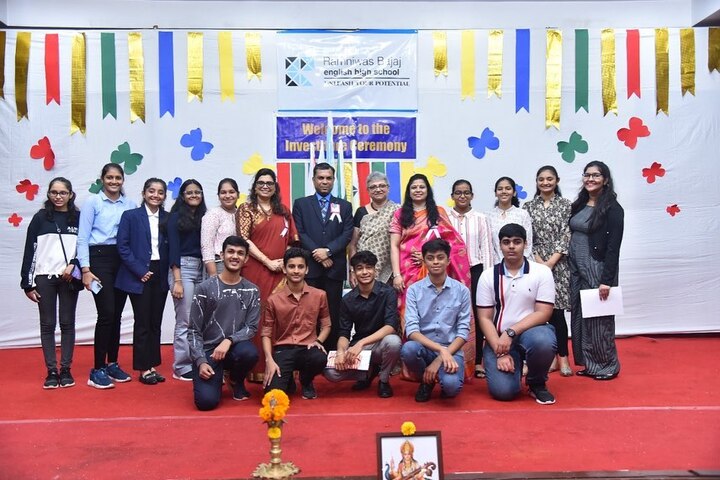ATTENTION:
HEAD OF SCHOOLS AND PRINCIPALS
Fulfil your responsibility to prepare students for the professional world by equipping them with 21st-century soft skills vital for career success
Use this 3-step process to accelerate students’ current academic performance and prepare them effectively for the world of work with or without ABMA Skills’ support
What We Cover

✓ How to prepare your students for the professional world and equip them with the 21st-century soft skills needed for career success
✓ A step-by-step breakdown of our 3-step process
✓ How to direct your resources – time, money and energy – in the right areas to get an impact
✓ How to immediately improve your students’ academic performance, individuality and confidence
✓ Case studies and stories from our clients
Case Studies
Ewell Castle School
Location: Ewell, England
Ewell Castle School is an independent school and sixth form in Ewell, Surrey, England that was founded in 1926. Ewell Castle School aims to inspire, engage and excel and ABMA Skills successfully supported their goals with 21st-century soft skills training.
Ewell Castle School’s Head of Sixth Form, Elizabeth, and their Career Advisor, Rebecca, decided to proceed with ABMA Skills’ soft skills training as they thought it was a fantastic opportunity for their learners to develop skills that are essential for the world of work and progress in their careers going forward. The training also appealed to them due to interactive and engaging content – perfect for digital-savvy students.
Rebecca confidently stated that there is a gap in the soft skills market and that employers often voice their frustration at the lack of work readiness in young people. Therefore, it is hugely important that students master soft skills in order to succeed and build a successful career.
The ABMA Skills’ soft skills training has helped their learners develop crucial skills such as working as part of a team, managing difficult situations and coping with change. They will understand employer expectations and how to cope with challenges in the workplace. They will also learn to take ownership of their mistakes and take responsibility for their actions.
Would you recommend other schools to have such soft skills training?
‘I would strongly recommend other schools participate in the soft skills training. Schools have a responsibility to prepare students for the world of work and must help them to develop the skills necessary for success in the workplace. Schools have a commitment to recognise soft skills as a core element of their preparation for the world of work.’


De La Salle Santiago Zobel School
Location: Vermosa, Philippines
De La Salle Santiago Zobel School (DLSZ), established in 1978, is a mixed catholic school with over 4,000 students spread across two outstanding campuses’. They focus on inspiring curiosity and fostering critical thinking helping students to reach their optimum potential.
Senior High School Vice Principal, Teddy De Castro, and ABM Strand Coordinator, Christelle Catalan, enrolled students with ABMA Skills as it offered many supporting soft skills such as time management, problem-solving and teamwork that would accelerate their students’ learning and development enhancing academic progress in their current studies.
DLSZ students have reported that they have benefited from the links that the programme creates between their studies and the real world. They were easily able to find their way around the online platform, enjoyed and found the manner in which the modules were presented to be engaging. Students were successfully able to complete the course independently without any supervised assistance.
How do your students benefit from the programme?
‘All the skills you have and are offering are practical skills that they (our students) would actually need, not just in high school, but in college and for the years to come. It is going to be really beneficial for them.’


Tara Pattana International School
Location: Chonburi, Thailand
Tara Pattana International School (TPIS) has a mix of international students that creates a spirit based on diversity, respect and understanding. They provide a rigorous British Education with a Global Perspective for students of Early Years, Primary and Secondary ages that draws its strength from the National Curriculum of England, and adapts to blend with the values of Thai culture.
As a dynamic modern school, TPIS understands its responsibility to prepare students for leadership in a globalised world and offers ‘LEARNING FOR LIFE – Character education and life skills to prepare students for dealing with personal and social challenges that all young people face.’
Steven Wiggins, Head of Years 12 and 13, felt that the Essential Business Skills programme offered much more useful and appropriate material compared with other programmes as it focuses on and delivers a structured development of necessary and relevant soft skills rather than being a source of information.
Do you feel the self-evaluation element is a valuable part of the programme?
‘The self-evaluation enabled the students to self-identify areas for development. This is much more valuable than being told by a teacher.’


Ramniwas Bajaj English High School
Location: Mumbai, India
Ramniwas Bajaj English High School is affiliated to CISCE and is a leading school that believes that all children should be encouraged to do their best in a positive, hardworking and learning environment. They value each child as an individual and work hard to foster faith, caring attitudes, thoughtfulness, mutual respect, self-discipline and self-confidence.
Principal of Ramniwas Bajaj English High School, Florina Fernandes, adopted ABMA Skills for her students as she thought it is a very unique opportunity for pupils at RBHS.
According to Florina’s feedback, student academic performance is given more importance in India and soft skills are something that needs to be given the same attention. It is also a great opportunity for parents to understand the importance of soft skills and that soft skills can also impact their children’s academic performance. Once these vital skills are mastered, student performance will be boosted.
How do you feel about the soft skills programme and the initial soft skills self-evaluation?
‘I think this soft skills programme is very beneficial. I thought it is a unique opportunity for our students because I know the importance of soft skills. The self-evaluation results will be a ‘wake up’ call for parents and they will realise there is something else their children need to focus on apart from the academics.’


Lady Eleanor Holles International School
Location: Foshan, China
YAn exceptional British curriculum day and boarding school located in the dynamic city in the centre of the Greater Bay Area, catering for boys and girls from 6 to 18 years old. LEH Foshan was founded on the blueprint of one of England’s oldest and pioneering schools with a history of 300 years. They are devoted to emulating the legacy of LEH London by offering a holistic education to all their students, giving them both physical and emotional space to express themselves.
Through a well-balanced academic curriculum and a plethora of extra school activities, the school encourages students to grow into dynamic young adults, fearless in their outlook and helps them to be world-ready and future-ready.
Jane Arden, Headteacher, believes that supporting students with real-world skills such as soft skills is the key to a successful future. The programme has been implemented into their offering for their Year 11s as well as forming a key component for their ‘Insert Year’ Students who are transitioning across from the Chinese education system.
Which soft skill do you feel your Chinese students would benefit most from?
‘Conflict resolution is a really valuable soft skill for our Chinese students. It is a skill they will need once they arrive at university and if they are to succeed in business but one that they won’t have experience or practice of due to culture.’


Who Is This For?
Who Is This NOT For?
✓ If you are responsible for your students’ academic performance and readiness for the world of work
✓ If you want to improve your students’ grades and final exam results
✓ If you strive to stand out from other education institutions in your area and increase your reputation
✓ If you want to have a diverse environment and encourage student individuality and uniqueness
Χ If you think encouraging diversity and individual development for your students is not important
Χ If you are not passionate about increasing your education institution’s reputation due to successful students
Χ If you think it is not your responsibility to effectively prepare your students for the professional world
Χ If you are willing to lose new potential students every year to other competitor institutions
Why Choose ABMA Skills

Students can no longer rely on academic grades to ensure a higher education place and employment, they need to be able to demonstrate that they can offer more.
ABMA Skills wants to ensure that your school can meet this need, offering 21st-century soft skills training that will encourage students to think beyond textbooks and unlock their full potential.
We help learners to recognise their unique abilities so that they enter the world ready to excel, perform to the best of their abilities, exceed standards and transform their future.
Our Statement Of Intent: Soft skills are a direct link to academic and further career success.
This is why ABMA Skills’ aim is to help education institutions understand that soft skills training is a core element of any curriculum which can not only boost their student current academic performance but also fully prepare them for their future career.
In 2023, there is a big gap in the soft skills training sphere at education institutions. ABMA Skills is dedicated to solving this problem for schools.

Our Simple 3-Step Process
To immediately improve students’ academic performance and readiness for the world of work
STEP 1: Evaluate your students’ current level of soft skills
OLD WAY
Create overly simple soft skills assessments internally
Teachers make visual observations based on students’ daily routines that will not cover all the aspects and areas of soft skills
Provide assessments internally which can make students answer untruthfully due to fear of teachers reviewing their answers
Evaluate your students’ level of soft skills in groups which creates a risk of invalid data due to generic reports
Qualitative data is not always considered for developing further training
NEW WAY
Offer external soft skills evaluation in order to prevent invalid data and ensure students answer truthfully
Provide soft skills evaluation that includes diverse questions covering all aspects and areas of soft skills
Encourage students to evaluate their level of soft skills individually so it becomes more effective
Send individual reports to students to keep their answers private
Receive visual group soft skills evaluation reports with clear results and further plan of action
OLD OUTCOME
A basic understanding of some soft
skills for a limited number of students without
a personalised approach and evaluation
NEW OUTCOME
Making students aware of current abilities,
teaching them the skills of self-reflection and
providing them with a focus for the enhanced learning
STEP 2: Take action on student individual soft skills gaps
OLD WAY
If soft skills gap is identified, offer a few additional group projects and sport activities to students
Students don’t take onboard teachers’ comments about their soft skill gaps
Provide generic, knowledge-based training developed internally that requires a lot of resources and time
Outsource the soft skills training elsewhere which requires a great amount of time and money spent
Make students complete the training without any take-away tools for further development
NEW WAY
Assign structured soft skills training which clearly shows students how they will master their missing skills
Provide reports that have been based on students’ own answers making them see the need for soft skill development
Provide visual and engaging soft skills training that will help students digest information easier and quicker
Offer accredited training that will provide students with a certificate
Offer training that provides take-away tools that can be used in academic studies now and in the future
Training that is ready to go with little work or expense
OLD OUTCOME
A lack of understanding and engagement from
the student of what the additional projects/sports
activities are for, resulting in lower productivity and
no material benefit to students
NEW OUTCOME
Students understand their soft skill abilities,
are engaged and enthused about taking the
training as it is a simple, viable and a tangible
way for them to improve
STEP 3: Implement regular soft skills training into your institution’s curriculum/co-curriculum
OLD WAY
Prioritise other co-curricular activities and offer soft skills training time-to-time without a schedule
Offer soft skills training only at the end of the year to a final-year group
Work with other soft skill providers that don’t offer self-evaluation
Work with other training providers that don’t offer an accredited programme
Work with other soft-skill training providers that are not online, old fashion and not engaging
NEW WAY
Choose an effective yet short soft skills training programme
Spread the soft skills training programme throughout the academic year and different year groups
Flexible training that is online and can be incorporated into your curriculum or be part of your co-curriculum activity
A cost-effective programme that saves your school money
Students understand the value of lifelong soft skill development
OLD OUTCOME
A costly activity without any
tangible results for your school or the students
NEW OUTCOME
Improved academic performance while
fulfilling your school’s responsibility to
prepare students for life after school
The Results Of Using ABMA Skills’ Soft Skills Training
✓ You will improve your students’ current academic performance: grades and final results
✓ You will help your students unlock their full potential and boost their confidence
✓ You will improve your students’ employability rate once they leave your education institution
✓ You will engage students with highly visual soft skills training helping them digest information easier and quicker
✓ You will help students evaluate their current strengths and weaknesses individually
✓ You will provide students with helpful and reusable tools and assets to take away for their further development
✓ You will provide students with accredited certificates of completion that can be used with CVs and résumés
✓ You will improve learners’ skillset in the following areas: time management, problem-solving, decision-making, report writing, presentation skills, critical thinking, emotional intelligence, conflict resolution, motivation, teamwork, leadership, mentoring and networking
✓ You will increase your education institution’s reputation and recognition from parents and new potential students